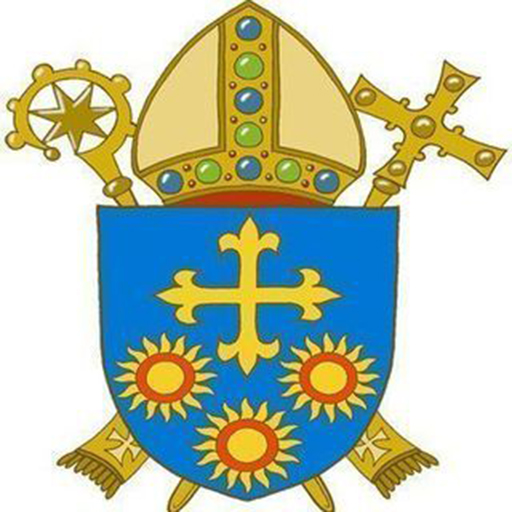Reconciliation
The Sacrament of Penance, also know as the Rite of Reconciliation, is the “liturgical celebration of God’s forgiveness of the sins of the penitent, who is thus reconciled with God and with the Church. The acts of the penitent-contrition, the confession of sins, and satisfaction or reparation-together with the prayer of absolution by the priest, constitute the essential elements of the Sacrament of Penance” (Catechism of the Catholic Church, 980, 1422, 1440, 1448).
Through the three sacraments of initiation (Baptism, Confirmation, and the Eucharist) we receive the new life of Christ, but we carry this life in earthen vessels and remain subject to suffering, illness, and death. Moreover, this new life as a child of God can be weakened and even lost by sin. For this reason, The Lord Jesus – the divine physician of our bodies and souls – has given us two sacraments of healing: Reconciliation and the Anointing of the Sick.
On the Day of His Resurrection, the Lord Jesus breathed on the Apostles, giving them the gift of the Holy Spirit, and proclaimed:
“If you forgive the sins of any, they are forgiven; if you retain the sins of any, they are retained” (John 20:23).
This gift of grace to the Apostles allows mortal, sinful men to act as God’s instruments in the forgiveness of all sins committed after Baptism, and this sacred power is exercised by bishops and priests in the Sacrament of Reconciliation when they hear the confession of sins and pronounce absolution for the remission of sins by the precious Blood of Jesus Christ.
The Sacrament of Reconciliation is a sacred mystery of conversion from sin, confession of guilt, forgiveness of the wrong done, and reconciliation with Christ and His Church. All Catholics over the age of reason should come to the Sacrament of Reconciliation at least once each year during Lent or Eastertide and as often as necessary when conscious of serious sin. In addition, anyone conscious of grave sin should not receive Holy Communion before being reconciled to God by sacramental confession and absolution (see 1 Cor 11:27-32).
“The time is fulfilled, and the Kingdom of God is at hand; repent, and believe in the Gospel” (Mark 1:15).
With this ringing call to conversion, the Lord Jesus began His public ministry. It is impossible to be a disciple of Jesus without repentance and conversion, without the constant effort to be conformed by God’s grace to the image of the crucified Lord. Baptism for the remission of sins is the foundation of this lifelong struggle against all forms of disordered self-love, but in ordinary circumstances, all grave sins committed after Baptism require the grace of the Sacrament of Reconciliation for forgiveness.
The Sacrament of Reconciliation (a.k.a., Confessions) is currently available on Saturdays at 10:00 AM in the St John’s room (located next to the office hatch) and also by appointment. During the liturgical seasons of Advent and Lent, we celebrate a Parish Reconciliation Service of music, readings and individual confessions.
The Catechism of the Catholic Church gives a thorough treatment to this topic in sections 1422-1498. Please study those paragraphs carefully and resolve to seek the mercy of God through the best means He has given us for repentance, conversion, and reconciliation: the confession and absolution of sins in the Sacrament of Reconciliation. Catholics who are married outside the Church cannot receive the Sacrament of Reconciliation until and unless they can be married inside the Church. However, for pastoral necessity approach the Parish Priest.

